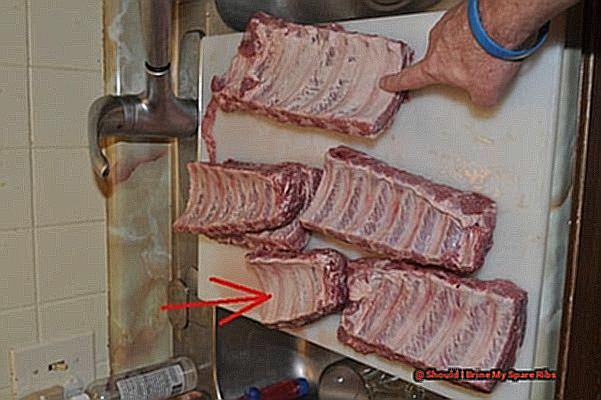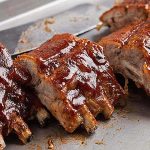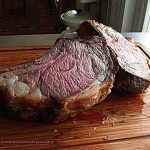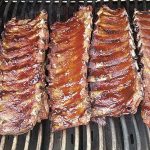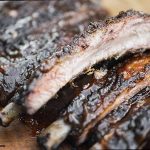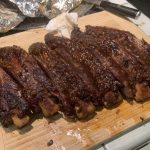Do you find yourself constantly disappointed by dry and tough spare ribs? Are you ready to take your rib game to the next level and achieve mouth-watering perfection? Well, it’s time to consider a game-changing technique – brining. That’s right, brining isn’t just for turkey or chicken, it can also work wonders for spare ribs. But why should you bother with brining? Allow us to convince you with these compelling reasons:
- Brining adds moisture and flavor to the meat, resulting in juicy and tender ribs.
- It helps break down tough muscle fibers, creating a succulent texture.
- The salt in the brine acts as a natural tenderizer, further enhancing the tenderness of the ribs.
- Brining allows for better seasoning penetration, ensuring every bite is bursting with flavor.
- Plus, it reduces cooking time, making your spare ribs ready in no time.
Why settle for mediocre when you can have perfectly tender and flavorful spare ribs every time? Let’s delve into the details and discover how brining can elevate your rib game.
Contents
- 1 Ingredients Needed for a Basic Pork Rib Brine
- 2 Steps to Brine For Ribs
- 3 Tips for ensuring maximum flavor infusion.
- 3.1 Dry the ribs before applying the dry rub
- 3.2 Use an ample amount of dry rub
- 3.3 Allow for marinating time
- 3.4 Experiment with different spice combinations
- 3.5 Wrap or store properly if marinating for an extended period
- 3.6 Consider using a longer marinating time
- 3.7 Rest and store properly after grilling
- 4 Grilling Brined Ribs
- 5 FAQS about brining pork ribs
- 5.1 Is it necessary to brine pork ribs?
- 5.2 How long should you brine pork ribs?
- 5.3 What ingredients should be used in a brine for pork ribs?
- 5.4 Does brining affect the cooking time of pork ribs?
- 5.5 Should you try brining pork ribs?
- 5.6 What are the advantages and disadvantages of brining pork ribs?
- 5.7 What are some techniques for preparing and brining pork ribs?
- 5.8 How do you choose the right brine for your pork ribs?
- 5.9 What are some best practices for cooking brined pork ribs?
- 6 Conclusion
Ingredients Needed for a Basic Pork Rib Brine
To achieve a flavorful and tender pork rib, you will need the necessary ingredients for a basic brine. These components work together to create a delectable dish that will surely impress your taste buds.
- Salt: The role of salt in a pork rib brine is vital. It helps break down the tough meat fibers, resulting in tender and succulent ribs. Additionally, salt aids in the absorption of moisture, ensuring that the ribs are juicy and moist. It also contributes to balancing and enhancing the overall flavor profile of the ribs.
- Sugar: Another crucial ingredient in a pork rib brine is sugar. It balances out the saltiness and adds a touch of sweetness to the ribs. It also helps with caramelization during cooking, giving the ribs a beautiful color and texture.
- Water: As with any brine solution, water serves as the base and plays a significant role in infusing flavors into the meat. It also helps keep the ribs moist during cooking, preventing them from becoming dry and tough.
Optional ingredients can also be added to enhance the flavor profile of a basic pork rib brine. Some popular choices include cinnamon sticks, peppercorns, apple cider, or even cold brew coffee or beer for added bitterness or fall flavors.
Brining is an essential step in preparing BBQ ribs, as it not only adds layers of flavor but also enhances tenderness. Through osmosis, the brine allows for the absorption of moisture into the meat, resulting in juicy and tender ribs. With patience, precision, and proper storage techniques, brining can elevate your BBQ ribs from good to excellent. So why not give it a try?
Steps to Brine For Ribs
Brining is a crucial step when it comes to preparing delectable BBQ spare ribs. It is a process that involves soaking the ribs in a solution of salt, sugar, water, and desired flavorings, also known as a brine. This technique is essential as it not only enhances the flavor but also tenderizes the meat by breaking down connective tissues.
But what are the specific steps to properly brine spare ribs? First, prepare the brine solution by mixing salt, sugar, water, and your preferred flavorings in a container. Then, submerge the ribs in the brine solution and allow them to soak for 4-8 hours, depending on your desired level of tenderness and flavor.
Next comes the grilling process. Preheat your grill to medium-low heat and cook the ribs bone-side down away from direct heat for about 2-3 hours. It is essential to monitor the grilling process carefully to ensure that the ribs are cooking evenly and not becoming too dry.
Once grilled, let the ribs rest for 10-15 minutes before cutting them into individual pieces and serving with extra sauce on the side. This resting period allows the juices to redistribute throughout the meat, resulting in a more tender and flavorful bite.
But why is brining important for BBQ? Firstly, it adds moisture and tenderness to the meat by helping it retain its natural juices. Additionally, it enhances the flavor by infusing unique flavors into the meat using herbs, spices, sugars, or fruit juices in the brine solution. Brining also improves the texture of the meat, making it smoother and more succulent. Moreover, it allows for endless flavor combinations to suit individual preferences.
Brining is a scientific process that utilizes osmosis and diffusion to tenderize and add flavor to the meat. To achieve perfectly juicy and flavorful ribs, it is crucial to follow proper grilling techniques such as cooking the brined ribs at a low and slow temperature of 275°F to 300°F. Lastly, it is essential to take care of the ribs after grilling by properly covering, resting, slicing with a sharp knife, and storing leftovers.
Tips for ensuring maximum flavor infusion.
Brining is a crucial step in preparing BBQ ribs, especially for spare ribs, which can be tough and dry without it. The process of osmosis in brining aids in the absorption of moisture by the meat, resulting in tender and juicy ribs. It also allows for the infusion of flavors, enhancing the taste profile of the ribs. To guarantee maximum flavor infusion when brining spare ribs, here are some tips to keep in mind:
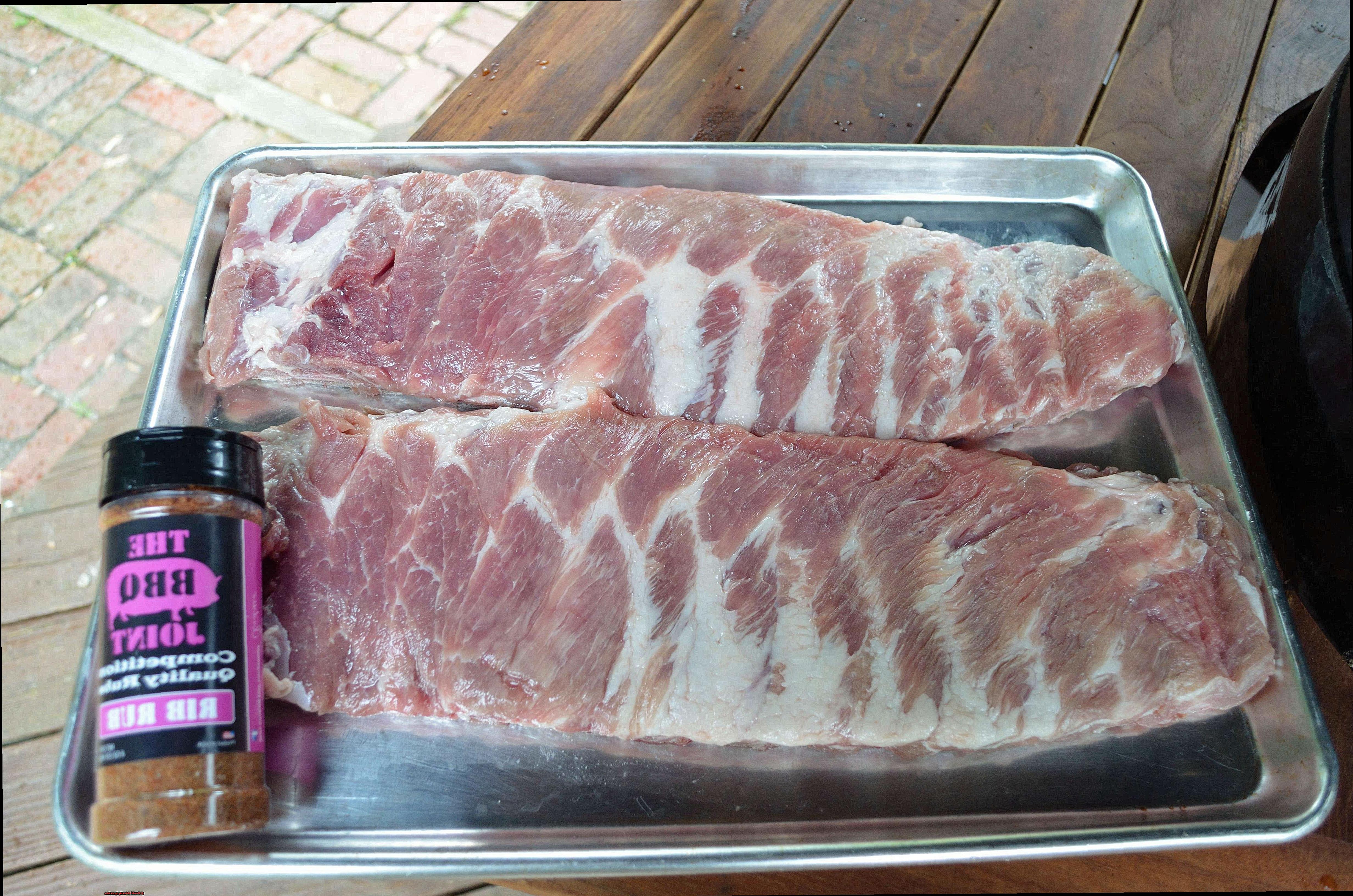
Dry the ribs before applying the dry rub
Before beginning the brining process, make sure to pat the ribs dry with paper towels. This will assist in the proper adherence of the dry rub to the meat.
Use an ample amount of dry rub
Coat all sides of the ribs with a generous amount of dry rub, ensuring to massage it into the meat for optimal flavor infusion.
Allow for marinating time
While 30 minutes is the minimum recommended time for marinating, consider letting the ribs sit overnight in the refrigerator for a more intense flavor.
Experiment with different spice combinations
Don’t be afraid to try out various spice combinations and adjust quantities according to your personal preference.
Wrap or store properly if marinating for an extended period
If you plan on marinating the ribs for a longer duration, make sure to wrap them tightly or store them in an airtight container to prevent them from drying out.
Consider using a longer marinating time
The longer the meat is left in the brine, the more flavorful it will be. Consider using a longer marinating time to allow the flavors to meld and enhance the taste of the meat.
Rest and store properly after grilling
After grilling, allow the ribs to rest for at least 10 minutes before serving. This allows juices to redistribute for maximum flavor and juiciness. Leftover ribs should be stored appropriately in an airtight container in the refrigerator to maintain their quality.
By following these tips, you can ensure maximum flavor infusion in your brined spare ribs, elevating your BBQ experience to new heights. Remember to have fun and experiment with different flavors to discover your perfect rib recipe.
Grilling Brined Ribs
Brining is a technique that can elevate your grilled spare ribs to a whole new level. By allowing a saltwater solution to permeate the meat, it adds layers of flavor, moisture, and tenderness. Not only does it break down tough muscle fibers, but it also helps to shorten the cooking time and enhance the color of the ribs.
But what exactly is brining? It’s basically marinating your ribs in a solution of water, salt, and sometimes additional seasonings. This may seem like a simple process, but the results are anything but ordinary. The key is to let the ribs soak in the brine for at least a few hours, or even overnight, to allow the flavors to fully infuse into the meat.
The benefits of brining go beyond just enhancing the taste and texture of your spare ribs. It also ensures that they stay juicy and succulent throughout the grilling process. This is because as the saltwater solution penetrates the meat, it breaks down proteins and draws in more moisture, resulting in perfectly moist and tender ribs.
But wait, there’s more. Brining also helps to speed up the cooking time. Since the saltwater solution has already penetrated the meat, it takes less time for heat to reach the center of the ribs. This means you can enjoy your perfectly cooked spare ribs in less time.
Not only does brining make your spare ribs more flavorful, moist, and tender, but it also enhances their appearance. The saltwater solution helps to create a beautiful caramelized crust on the outside of the ribs, giving them a gorgeous golden color that will make your mouth water.
So next time you fire up the grill for some spare ribs, don’t forget the magic of brining. With just a little bit of planning and preparation, you can take your grilled spare ribs from ordinary to extraordinary.
FAQS about brining pork ribs
Is it necessary to brine pork ribs?
While not essential, brining pork ribs can significantly enhance their flavor and texture by infusing them with moisture and tenderizing the meat.
How long should you brine pork ribs?
It is recommended to brine pork ribs for 12-24 hours, allowing enough time for the flavors to penetrate the meat without making it too salty.
What ingredients should be used in a brine for pork ribs?
A basic brine for pork ribs typically consists of water, salt, sugar, and various herbs and spices. However, you can also add other ingredients like garlic, onion, citrus fruits, or beer for added flavor.
Does brining affect the cooking time of pork ribs?
Yes, brining can shorten the cooking time of pork ribs as it helps to break down the muscle fibers and tenderize the meat. It is important to adjust your cooking time accordingly to avoid overcooking the ribs.
Should you try brining pork ribs?
Absolutely. Brining is a simple yet effective technique that can take your pork ribs from good to great. It enhances their flavor, tenderness, and juiciness, making them a hit at any BBQ gathering.
What are the advantages and disadvantages of brining pork ribs?
The benefits of brining pork ribs include enhanced flavor and tenderness, shorter cooking time, and a beautiful crust on the outside. However, the main drawback is that it requires additional time and effort to prepare the brine and soak the ribs.
What are some techniques for preparing and brining pork ribs?
First, make sure to thoroughly clean and trim the ribs before soaking them in the brine. You can use either a wet or dry brine method depending on your preference. For wet brining, submerge the ribs in a brine solution. For dry brining, simply rub the brine mixture onto the surface of the ribs and let it sit for a few hours before cooking.
How do you choose the right brine for your pork ribs?
The best brine for pork ribs will depend on your personal taste and preferences. You can experiment with different combinations of salt, sugar, herbs, and spices to create your own unique flavor profile. Just make sure to balance the flavors and avoid using excessive salt.
What are some best practices for cooking brined pork ribs?
After removing the ribs from the brine, make sure to pat them dry with paper towels to remove excess moisture before cooking. You can then proceed to cook them using your preferred method, whether it be grilling, smoking, or baking. Be sure to monitor the internal temperature of the ribs to avoid overcooking.
Brining is an excellent way to elevate your pork ribs to new heights of flavor and tenderness.
Conclusion
To put it simply, if you want to elevate your spare ribs from dry and tough to juicy and tender, brining is the way to go.
This revolutionary technique not only adds moisture and flavor to the meat, but also helps break down tough muscle fibers for a melt-in-your-mouth experience. By acting as a natural tenderizer and allowing for better seasoning penetration, brining takes your ribs to a whole new level of deliciousness.
And let’s not forget that it cuts down on cooking time, so you can enjoy your mouth-watering ribs in no time. With just a few easy steps and essential ingredients like salt, sugar, and water, you can achieve perfection on your plate every single time.
Don’t settle for average when you can have extraordinary with the power of brining.

